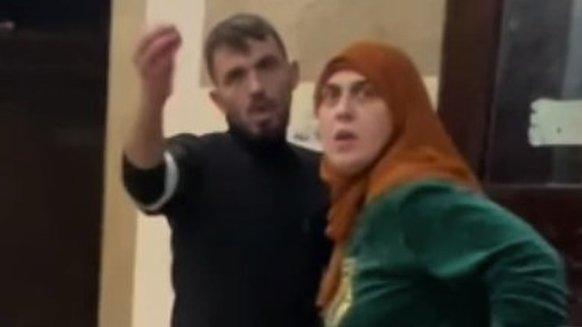The battle between farmers in West Bank pitting Israel against the US
- Published
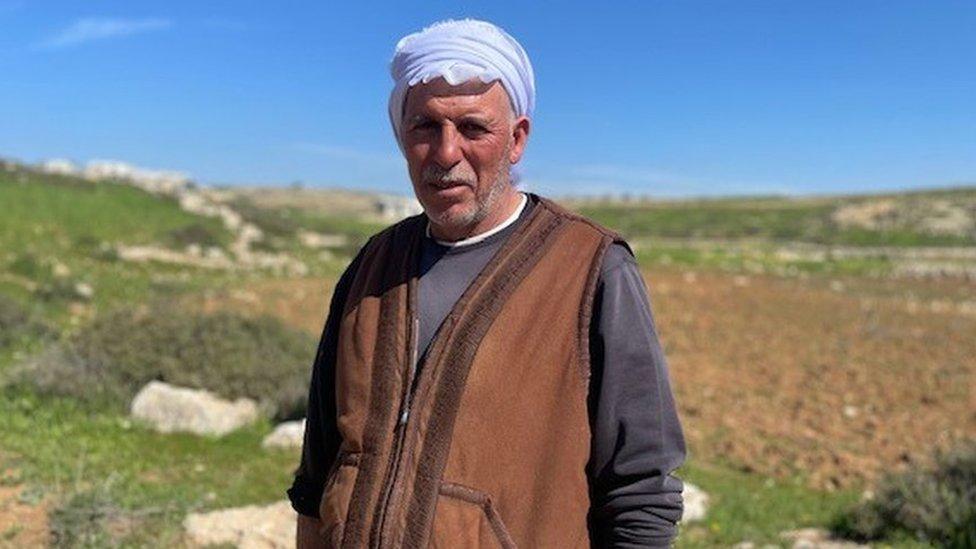
Palestinian farmer Fares Samamreh says he and his family left their farm after being attacked by Israeli settlers
The US has announced sanctions against three more Israeli settlers and - for the first time - two farming outposts, as part of new measures by Washington and London to stop the violent displacement of Palestinians in the occupied West Bank.
Fares Samamreh may not carry a gun, but he has a global superpower defending him. He's still losing the fight.
A Palestinian sheep farmer on the sun-tinged slopes of the South Hebron Hills in the occupied West Bank, his battle with his neighbour, an Israeli settler called Yinon Levy, has drawn both the US and the UK into the dispute.
"Yinon Levy came here three years ago and started bothering me," Fares said, his head wrapped in a piece of white cotton, his eyes narrowed in a permanent squint against the sun.
"Before the war [in Gaza] it was the usual thing; they would come with drones. But a few days after 7 October, it became serious. They all had guns. They started coming to us day and night. I have little kids - some of them are four and five years old."
Fares said Yinon was one of a group of local Israeli settlers who would regularly come to harass his sheep with their dogs and weapons, and even, he says, to assault his family.
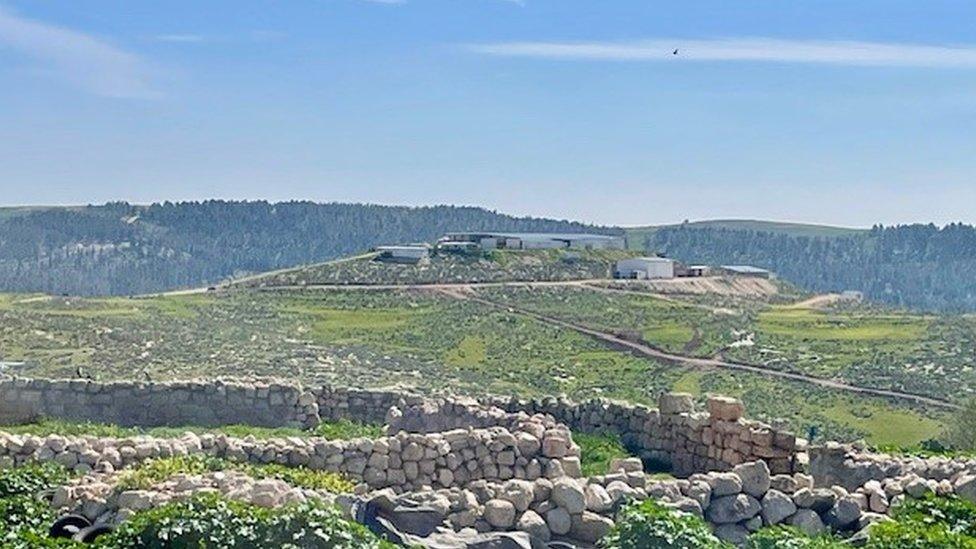
Israeli settler Yinon Levy's farm sits on a hilltop outpost in the south of the occupied West Bank
"They destroyed water tanks, closed down roads, they fire at the sheep," he said. "He told my wife if we didn't leave here, we'd all be killed."
He said when his wife then swore at him, Yinon Levy hit her with the butt of his gun.
Soon afterwards, Fares and his family left their village of Zanuta. Activists say it's one of four communities around the settler's farm that have been abandoned by their residents.
Yinon has denied acting violently towards Palestinians in the area - and said he didn't own a gun until very recently.
But he's the subject of sanctions from both the US and the UK.
The road to Yinon's farm is straight out of a children's picture-book; a narrow path that winds back and forth up a steep hill, slopes and valleys dropping away to the horizon on either side.
At the top, a spacious bungalow stands next to a large shed, full of bleating sheep smothering the strains of pop music from a radio.
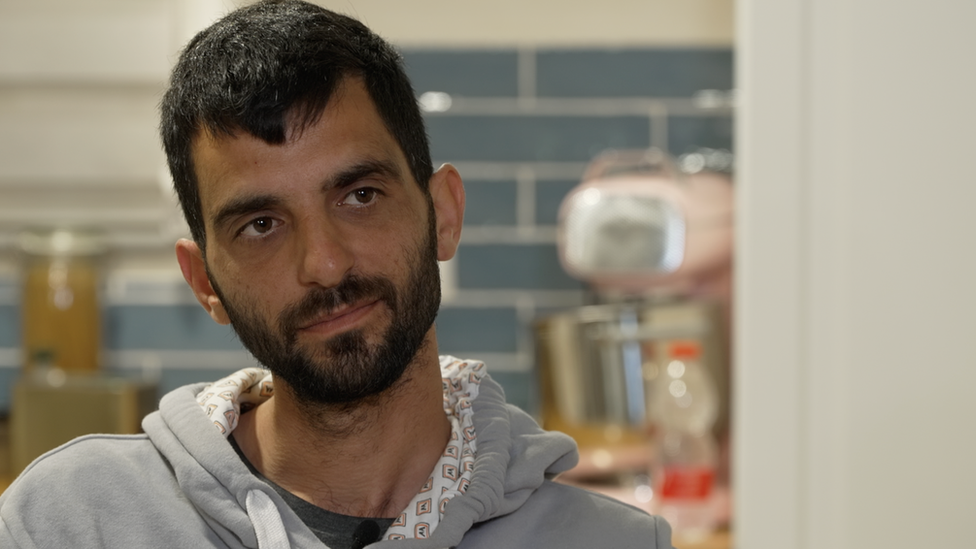
Yinon Levy denies the UK's claim he "used physical aggression, threatened families at gunpoint, and destroyed property"
"We're safeguarding these lands to ensure they remain under Jewish ownership," Yinon said. "When there is a Jewish presence, then there is no Arab presence. We keep a watchful eye on the land, ensuring that no unauthorised construction takes place."
Most countries deem the settlements, which are built on land captured by Israel in 1967 in the Middle East War, to be illegal under international law, although Israel disagrees. The settler outposts are also illegal under Israeli law.
The UK said that Yinon and another man had "used physical aggression, threatened families at gunpoint, and destroyed property as part of a targeted and calculated effort to displace Palestinian communities".
Yinon denied the allegations, and said that the Israeli government was on his side.
"I'm not worried," he told the BBC. "This is not against me personally - it's against those who obstruct the creation of a Palestinian state. There's no legal process against me [in Israel]. Here, everything is fine."
Both the UK and the US say there is a threshold of evidence that must be met - but neither have made that evidence public and declined to share it with the BBC.
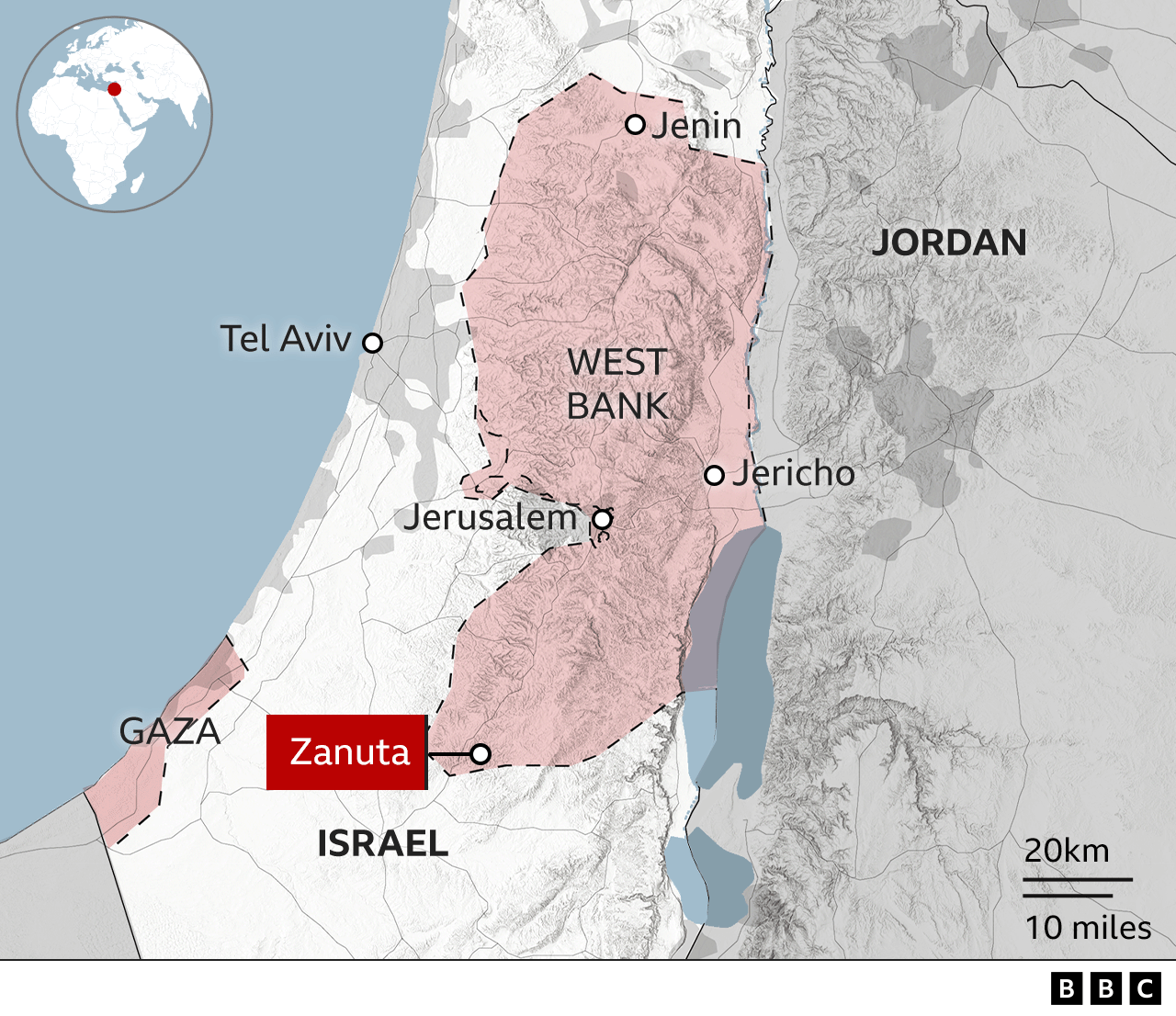
We sent Yinon a video appearing to show him on Palestinian land, approaching activists with a snarling dog. He said it was misleading, and that he was defending his flock.
We sent him another video apparently showing him entering another Palestinian village with a gun last October. He declined to comment.
The sanctions came after a surge in violence in the West Bank, following the 7 October Hamas attacks and Israel's war in Gaza.
The UN says violence by Israeli settlers included physical attacks and death threats, and that the number of Palestinians displaced from their homes last year doubled to 1,539 - with more than 80% of them leaving after 7 October.
The UK has said Israel is failing to act, and has described "an environment of near total impunity for settler extremists in the West Bank".
Yinon said that he had received support from Israeli politicians.
"Many called and encouraged us," he said. "Everyone said that when the bad people are against you, you must be doing something right."
One of the politicians who publicly backed Yinon in the wake of the sanctions was Zvi Sukkot of the ultranationalist Religious Zionism party - a settler himself.
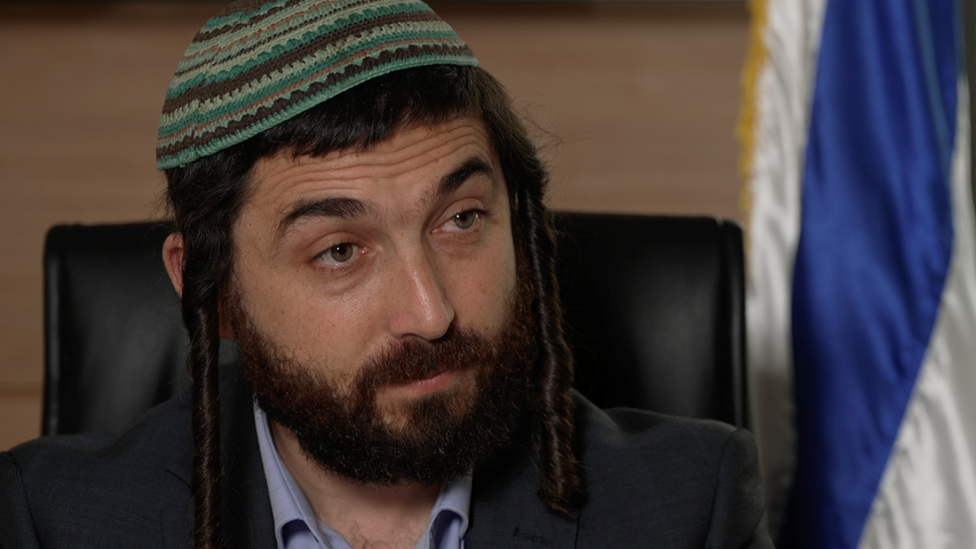
Zvi Sukkot, an Israeli politician and settler, is challenging the US and UK to present their evidence
He said that settler violence was a "marginal phenomenon" and that those like Levy were the victims of conspiracies.
"When we have a functioning judicial system in Israel, we don't want our allies to say, 'we'll do the job for you'," he said.
"If there was evidence against Yinon Levy, he would be in Israeli prison. Who is Britain to come and say, 'we are smarter than Israeli intelligence'?"
The Israeli police commander responsible for investigating complaints in the West Bank told Mr Sukkot's parliamentary committee this week that half the complaints filed about settler violence there were false, and that they originated from "radical left-wing organisations in Tel Aviv".
Against this backdrop, sanctions on a handful of individual settlers have not shifted Israeli policies in the West Bank, but they are having a financial impact.
Yinon's Israeli bank account was frozen last month.
Some of those currently under US and UK sanctions have used crowdfunding to finance projects for their area - including one for a synagogue and educational centre at another hilltop outpost called Moshe's Farm.
Its owner, Moshe Sharvit, was sanctioned along with Yinon Levy last month.
But on Thursday the US expanded sanctions to cover several new targets, including the farm itself - putting this kind of funding at risk.
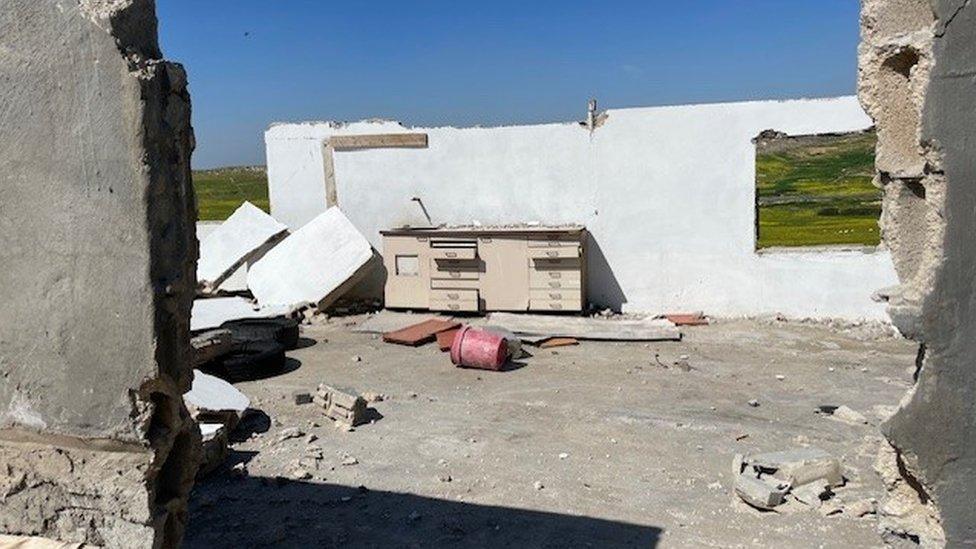
Houses in the Palestinian village of Zanuta have been destroyed
These sanctions may be more symbolic than substantial, but they signal American displeasure - both to Israel's leaders, and to the parts of President Biden's Democratic base who have been dismayed by images of the war in Gaza, in an election year.
The chairman of the local Yesha (settlers) Council, Shlomo Ne'eman, called it "a disgusting phenomenon" and said the West Bank was being used as a scapegoat.
"I think more than anything, what drives the response of the UK [and] the US is the fear of one settler attack that goes 'out of control'," said Yehuda Shaul, founder of the Ofek Centre, a think tank which campaigns to end Israel's occupation.
"The West Bank [then] erupts like a volcano. And we have another front, as if Gaza is not enough, and the road to regional war is almost unstoppable then."
Two sheep farmers in the occupied West Bank - one backed by a superpower, the other by the Israeli state. If the lifestyle here is simple, the politics are complicated.
From Yinon's hilltop farm, you can clearly see the ruins of Zanuta perched on the next hill, with the home Fares Samamreh left months ago.
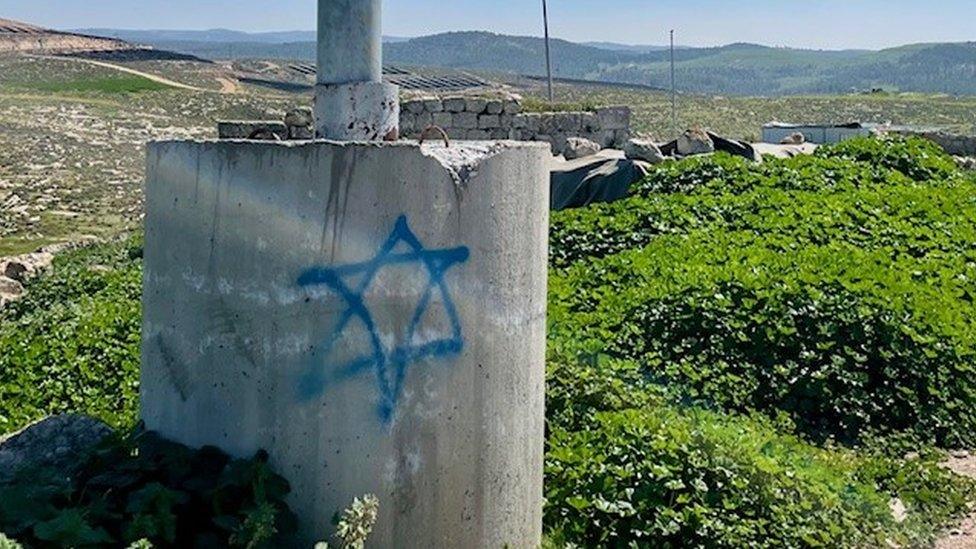
A large Star of David was scrawled in blue paint on a post in Zanuta
Many of the houses are ravaged - roofs and furniture taken by their owners into exile; walls smashed by settlers to prevent them returning, activists say.
The deserted village is slowly being taken over by vast banks of wild mallow.
On a post near the entrance, a large Star of David has been scrawled in blue paint.
Settlers here point to attacks by Palestinians, and say they are scared.
But it's Palestinians who are leaving.
- Published12 February 2024
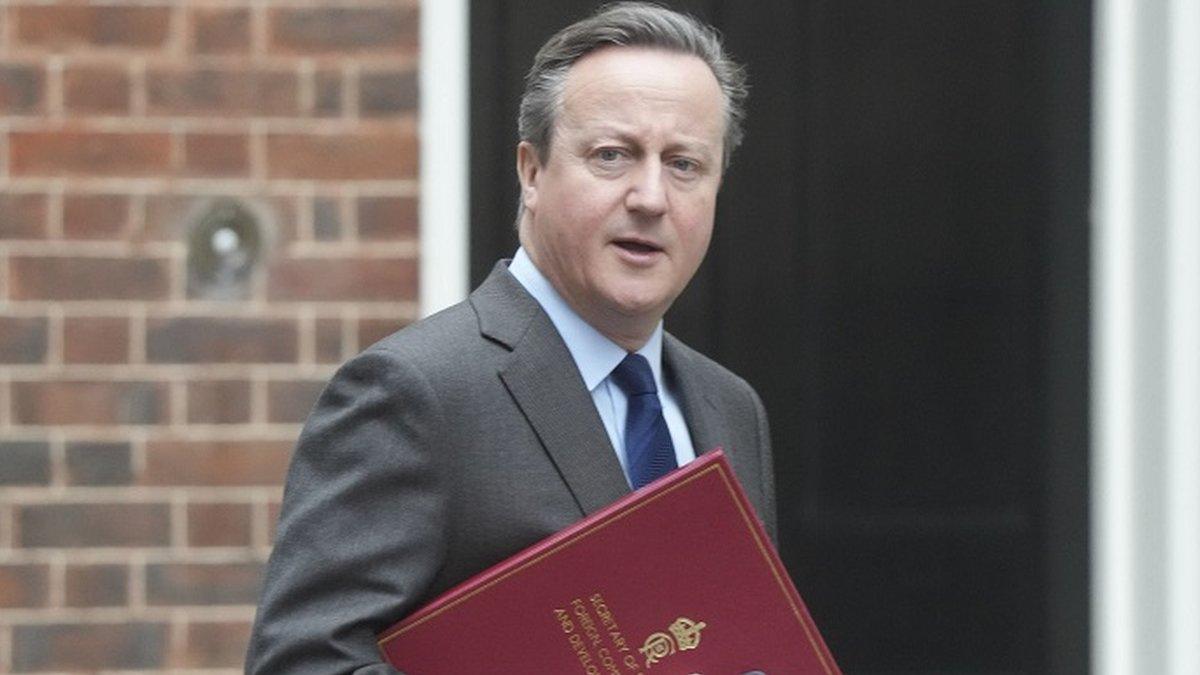
- Published6 March 2024
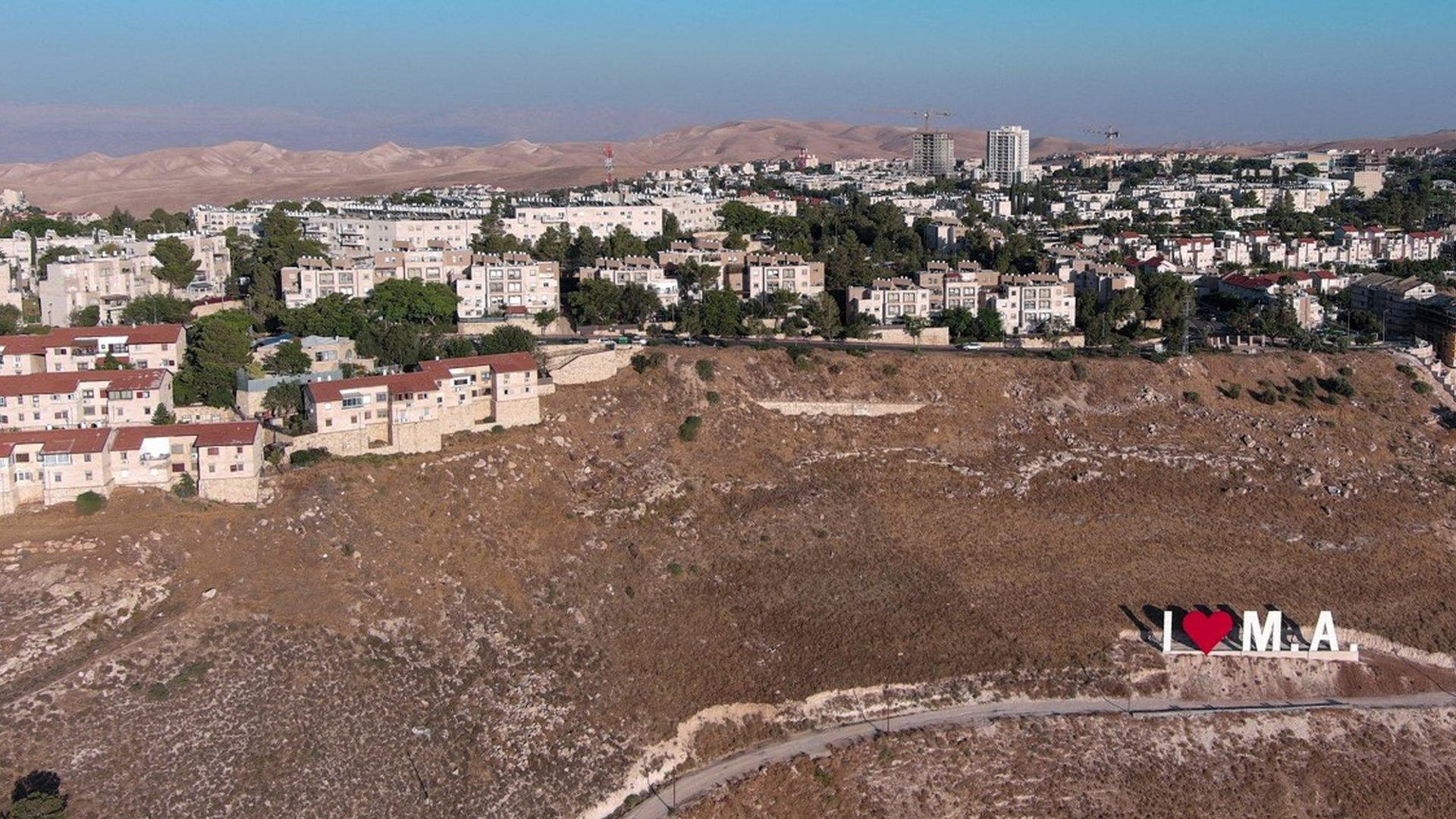
- Published14 March 2024
